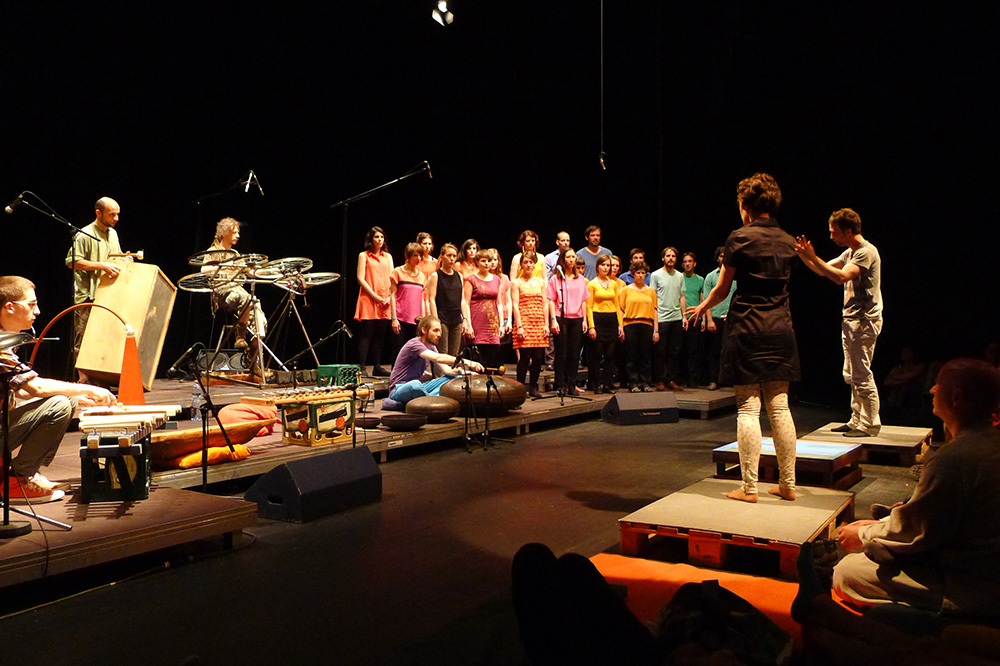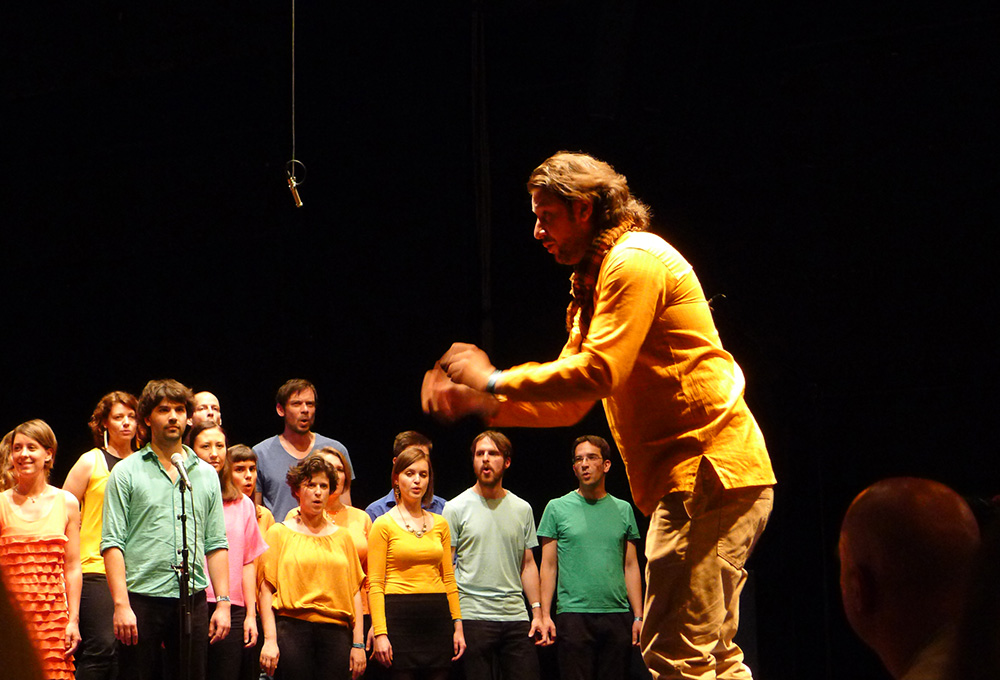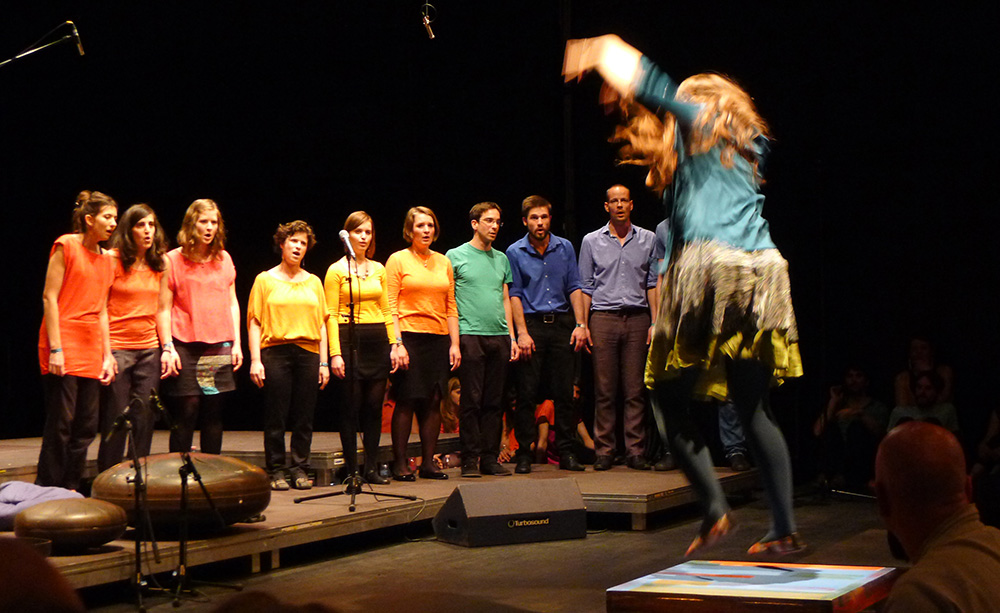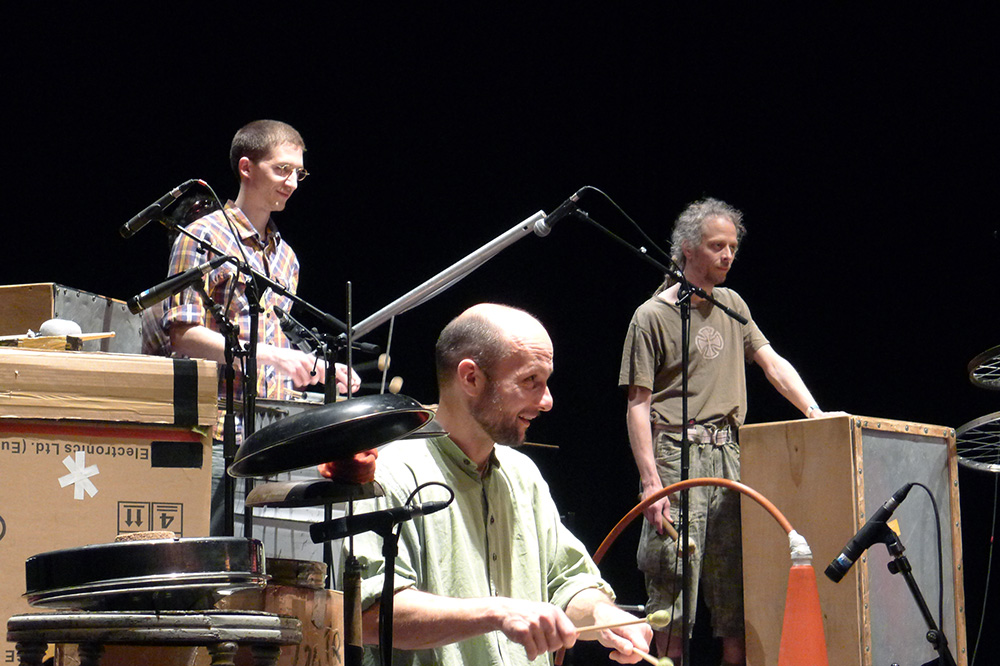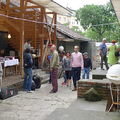Two musical groups joined forces to launch an experiment that promises to be quite a night of fun for all involved. The idea behind the project was to see what would happen if an ordinary person was suddenly thrust into the role of conductor and, without any prior training, had to direct two orchestras.
More precisely: conducting two orchestras who don’t even have sheet music.
This would, as you can imagine, be awesome, cringe-inducing, or perhaps a combination of both, as guests got to see at Trafó last week. Anyone in the audience could come forward (or as a team of two) and stand on a pallet, where they would gesticulate, dance, jump around or stand still: the orchestras played in reaction to their movements.
Of course “orchestra” is not the appropriate word, for these are unusual formations: the Bélaműhely ensemble do not even possess instruments. What they do have are bicycle wheels, spokes, a garden hose, cardboard boxes and an old computer keyboard – the clacking type, which I learned can be used as a shaker. There was also a bicycle drum, a “soundburger” and a “fakutya” – something akin to a sled. These are the “instruments” with which they create a pleasant atmosphere as they follow the conductor.
The other group, Soharóza, is not comprised of professional musicians, and, as a result their performances are not something you’ll find every day either: they perform in power plants, caves or, as I myself was witness, in the Király baths.
In other words, two fairly nutty groups, but in the word’s best possible meaning.
Imagine standing before them as 40 pairs of eyes fix their attention on you to see what you would like; what’s in your mind.
The rules are simple: the conductor chooses instruments and a choir, as well as its size and composition. The conductor then indicates who is to begin singing, and they hum to them what they should do, or through gestures convey what the style should be. And then you hear it, with the roles performed frequently becoming changeable. Bélaműhely usually employs percussion instruments, but the trumpet made from a garden hose can also play melodies. The Soharóza choir can not only sing, but they can speak, shout, whisper, cluck and clap.
But there is one rule more important than the others, which the first conductor forgot to uphold. The whole evening is about not showing off. If the conductor becomes too involved with themselves, then their performance becomes all about them. If they stand in front of a lot of people and show humorous movement without any meaning, it quickly becomes forced and uncomfortable.
The second rule: there are no mistakes. You cannot express to the musicians that you are impatient or that they’re not understanding what you’re trying to get across. You need to be clear yourself, and, if for some reason, you still can’t get your message across, just accept what you’ve created.
The third rule I’ll mention myself, although they didn’t mention it during the performance: you should arrive with some sort of concept already in mind. Before you get there, you should have worked out a rhythm, melody or something, otherwise you’ll just create noise, and although the forty people concentrating before you will do their best to make something of it, it will still end up fairly primitive and unexciting.
There were many great moments during the performances, as well as some when there was not much all that spectacular. But there’s no problem with that, for the evening is about everyone (or at least ten people, due to time constraints) having a go. As for what the audience finds entertaining, that’s secondary. Communication without words is what’s going on here, without composition or a plan to make it exciting. Either you find the whole thing entertaining, or you don’t.
It’s an interesting experiment, and it’s great because it brings people closer to music, and when someone without the faintest idea of what to do stands up before them, Soharóza and Bélaműhely still manage to create something entertaining with it.
The concert’s page on the Trafó website can be found here.
Translation provided by Helpers Business and Immigration Services. Find us at www.helpers.hu
You may find the original article here.


